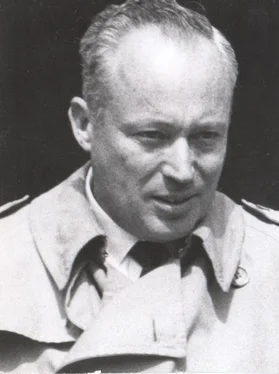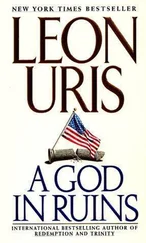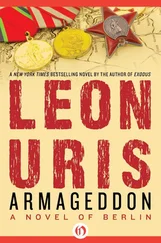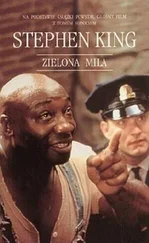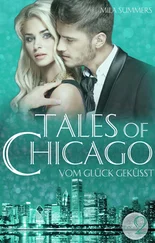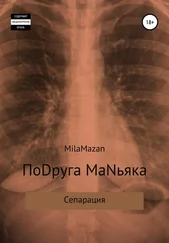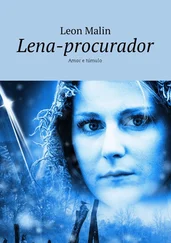But this part of war was by the rule book. Restraint. The victor had to show majesty. The loser was given his pride.
“I have a message from our commander. He urges surrender of Warsaw to avoid further useless bloodshed.”
“I have a message from our mayor in the event that your commander asks Warsaw to surrender. No.”
The German broke off the conversation, looking at his watch. “It will take me approximately six minutes to have your people moving here. They have been assembled in the small woods there.”
“I’ll wait.”
The German snapped his heels together, made a curt short bow from the waist, and walked back across the field.
Andrei stood alone. He heaved a terrible sigh and bit his lip. He watched the figure of the German grow smaller and smaller, and now the thousands of eyes were on him alone. The last of the proud Poles ... erect as a statue. Still cursing beneath his breath, still praying for his enemy to fight him face to face.
Six minutes passed to the second. The German was efficient. Clusters of men began to emerge slowly from the woods and cross the field toward Andrei. Andrei turned to his own lines and raised his hand.
They came from his side in two groups, one led by Thompson, the other by a German officer in command of the German prisoners. The distance was far shorter to Andrei than to the woods. They came at a trot and were formed up quickly.
Andrei looked toward the woods again, annoyed by the slowness of the Polish prisoners in returning.
“Something is wrong out there,” Thompson said.
Andrei lifted his field glasses, and his hand dropped. He kicked a potato on the ground viciously. He lifted the glasses again, and his face contorted with quivers of rage.
“No wonder they wanted to give us five to one,” he said. “They’re sending back nothing but amputees.”
“Oh dear God.”
“Must they torment us!” Andrei cried.
“Maybe,” Tommy said, “if they torment enough, we will wake up and get off our dead prats in America. Can we leave, Andrei?”
“Go ahead, Tommy. Move slowly. I want to be sure those men are safely in before you reach the woods. They may ... try something if they were left exposed.”
The Americans walked toward the enemy lines, turning their eyes from the macabre marchers coming in the opposite direction.
Andrei returned to the trench.
“What’s going on out there?” Chris said.
“Look for yourself.”
He took Andrei’s glasses. Nearly four hundred armless or legless men straggled toward Warsaw. Men with one arm used their other to carry stretchers of men with no legs, and men with one leg hobbled and fell in the pitholes.
Andrei turned to the captain. “Get out there and help those people,” he said.
Polish soldiers dropped their weapons and ran over the field and the two forces came together, and in the distance the thump-thump-thump of the cannonading began once more and overhead the first flights of German warplanes ushered in a new day.
It was night when Christopher de Monti reached the Bronski home in Zoliborz. As he approached the house, the familiar sound of music reached his ears. Rachael was playing the piano. How wonderful! How wonderful that Deborah was able to keep them together and functioning, holding back the fear and gloom. Chris was a welcome face these days. Young Stephan let out a large sigh of relief when Chris hugged him, for he knew the duties of “manhood” would be relieved for the time he was there.
Deborah was in the kitchen with Zoshia, who wailed in uncontrolled grief, her fat body wobbling as she cried. Deborah looked up at Chris.
“Poor thing. Her sister was killed in the raid today.”
Chris went to the study and found some cognac and made the woman drink it. They helped Zoshia to her feet and led her to Deborah’s own bedroom and forced her to lie down and fetched Rachael and Stephan.
“Sit with her, children. Don’t let her get up.”
Zoshia cried out that she wanted to go to her sister.
“No, dear. It is not safe there. The walls are all tumbling. Now rest ... rest.”
Deborah found a sedative in Paul’s study among the medicines he kept for family use and after great difficulty got the maid to drink it. In a while her wails died down to a weaker cry.
Chris led Deborah to the study and locked the door, and for a moment he held her and soothed her. “Poor thing,” Deborah said, “poor thing. Her only sister. All she has left is that no-good son, and she may not even have him. Not a word since the war.”
“She has you and the children.”
Chris poured her a drink, but she refused it. “The children have been so brave—how long can this go on?”
“I talked with Mayor Starzynski just now. It may end at any moment.”
“Sometimes I think I will be glad when it is over. Even with the Germans in Warsaw it can’t get worse. Have you seen anybody?”
Chris nodded.
“I was at the orphanage,” Deborah continued. “Susan Geller is worried about Ervin. She hasn’t seen him in three days.”
“Rosy is all right. I just left him a few minutes ago.”
“That’s good. And Gabriela? Did you tell her to come out here with us? It’s much safer than in the center of town.”
“She won’t leave Andrei’s apartment. You know that.”
“Andrei?”
“I was with him this morning, Deborah. The evacuation truce took place through his position on the line. You heard?”
“Yes,” she whispered, “they gave us back limbless men ... I heard.”
“Deborah ... your husband was one of them.”
The long storage corridors beneath the National Museum were a crush of cots and mattresses stretched out on the floor. The depth of the cellar gave protection from the shelling. It was converted hastily into a hospital. The power in that section of Warsaw had been blasted out. Even the emergency generators were gone. The musty halls were dimly lit by kerosene lamps. It was damp and it smelled moldy and it was clammy-cold and the smell of wounded flesh and antiseptics mingled with the other smells, and there were the sounds of nurses moving in a gliding kind of silence and there was the sound of continual prayer and moans and now and then a shriek of agony.
In the makeshift maternity ward, infants sucked at empty breasts and screamed angrily at what life had dealt them in their few hours on earth.
Chris led Deborah through the maze of corridors, threading his way among the sick and the dying. He went down another dozen steps into a long corridor storing medieval armor from other, less efficient wars. Here lay the amputees and here knelt their bereaved relatives. A nurse held a flashlight close to Paul Bronski’s face.
“Paul ...”
“He is under heavy sedation.”
“Paul ...”
A legless man next to Bronski spoke. “I was there when he did it. He had operated on about twenty or thirty of us ... he was working with a flashlight only ... then he got it ... direct hit ... he was the only doctor left alive. He was conscious the whole time, directing the soldiers how to take his arm off. ...”
“Paul ...”
Paul Bronski blinked his eyes open. They were glazed, but a small smile cornered his lips to say he knew she was there. She held his hand until he fell back into the drug induced sleep.
“You Mrs. Bronski?” a doctor asked.
She nodded.
“Lucky he is a doctor. There’s every chance he’ll get through without infection or serious complication. He’s out of shock. He’ll pull through all right.”
Deborah walked from the house of misery.
Chris waited at the main door of the museum. There were sudden flashes of light, like summer lightning, from the cannon fire on the horizon. The shells arched above them, plunging down on the workers’ shacks across the river.
Читать дальше
